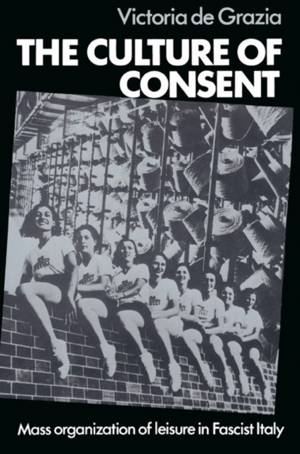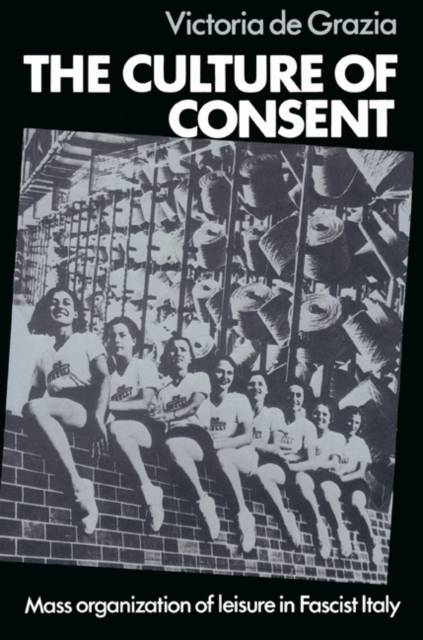
Bedankt voor het vertrouwen het afgelopen jaar! Om jou te bedanken bieden we GRATIS verzending (in België) aan op alles gedurende de hele maand januari.
- Afhalen na 1 uur in een winkel met voorraad
- In januari gratis thuislevering in België
- Ruim aanbod met 7 miljoen producten
Bedankt voor het vertrouwen het afgelopen jaar! Om jou te bedanken bieden we GRATIS verzending (in België) aan op alles gedurende de hele maand januari.
- Afhalen na 1 uur in een winkel met voorraad
- In januari gratis thuislevering in België
- Ruim aanbod met 7 miljoen producten
Zoeken
The Culture of Consent
Mass Organisation of Leisure in Fascist Italy
Victoria de Grazia
Paperback | Engels
€ 76,45
+ 152 punten
Omschrijving
The efforts of fascism to form a 'culture of consent, ' or shape depoliticized activities, in Italy between the world wars, make a unique portrait of fascist political tactics. Professor de Grazia focuses on the dopolavoro or fascist leisure-time organization, the largest of the regime's mass institutions. She traces its gradual rise in importance for the consolidation of fascist rule; its spread in the form of thousands of local clubs into every domain of urban and rural life; and its overwhelming impact on the distribution, consumption, and character of all kinds of recreational pursuits - from sports and adult education to movies, traveling theaters, radio, and tourism. The author shows how fascism was able, between 1926 and 1939, to build a new definition of the public sphere. Recasting the public sphere entailed dispensing with traditional class and politically defined modes of organizing those social roles and desires existing outside the workplace.
Specificaties
Betrokkenen
- Auteur(s):
- Uitgeverij:
Inhoud
- Aantal bladzijden:
- 324
- Taal:
- Engels
Eigenschappen
- Productcode (EAN):
- 9780521526913
- Verschijningsdatum:
- 25/07/2002
- Uitvoering:
- Paperback
- Formaat:
- Trade paperback (VS)
- Afmetingen:
- 156 mm x 229 mm
- Gewicht:
- 498 g

Alleen bij Standaard Boekhandel
+ 152 punten op je klantenkaart van Standaard Boekhandel
Beoordelingen
We publiceren alleen reviews die voldoen aan de voorwaarden voor reviews. Bekijk onze voorwaarden voor reviews.









